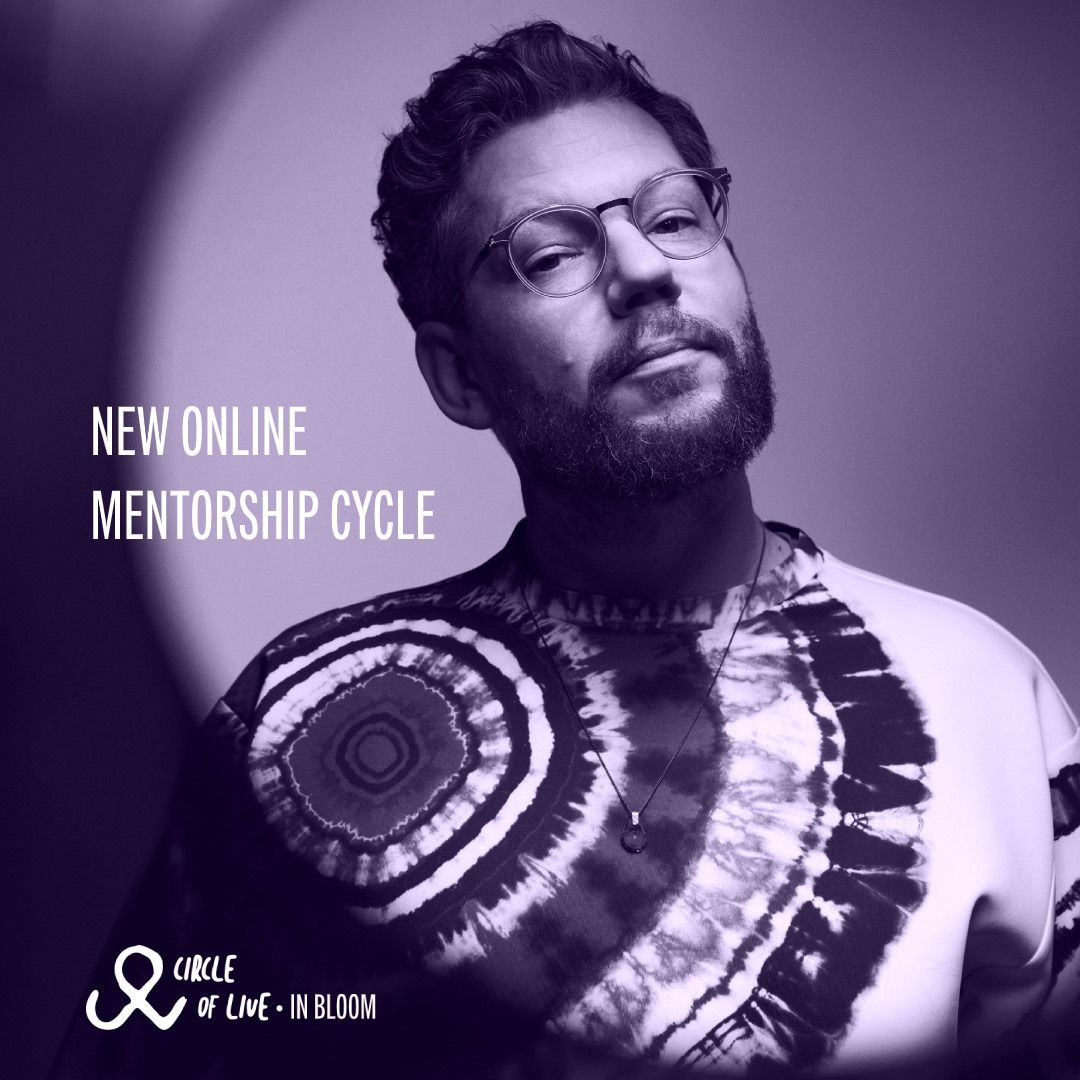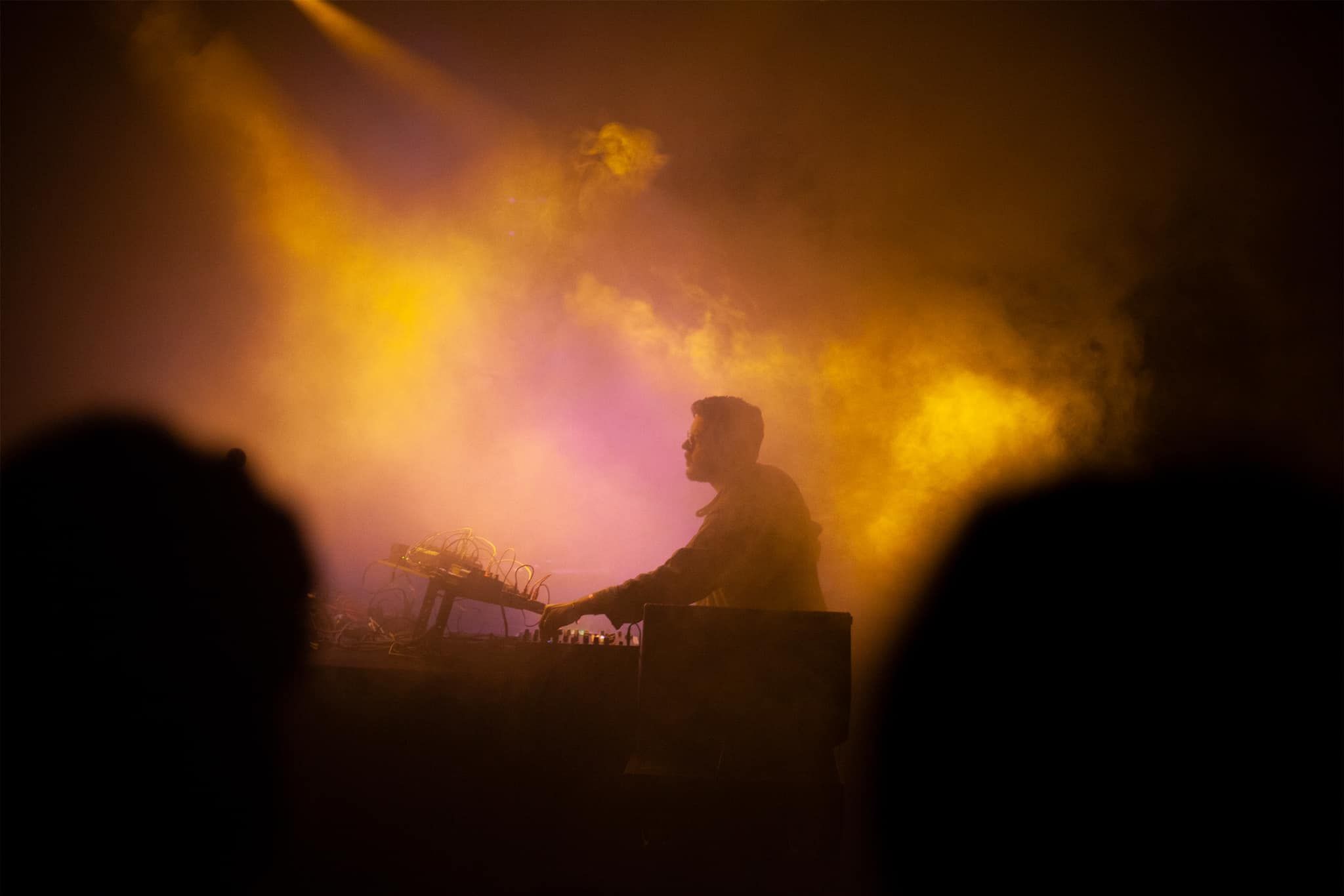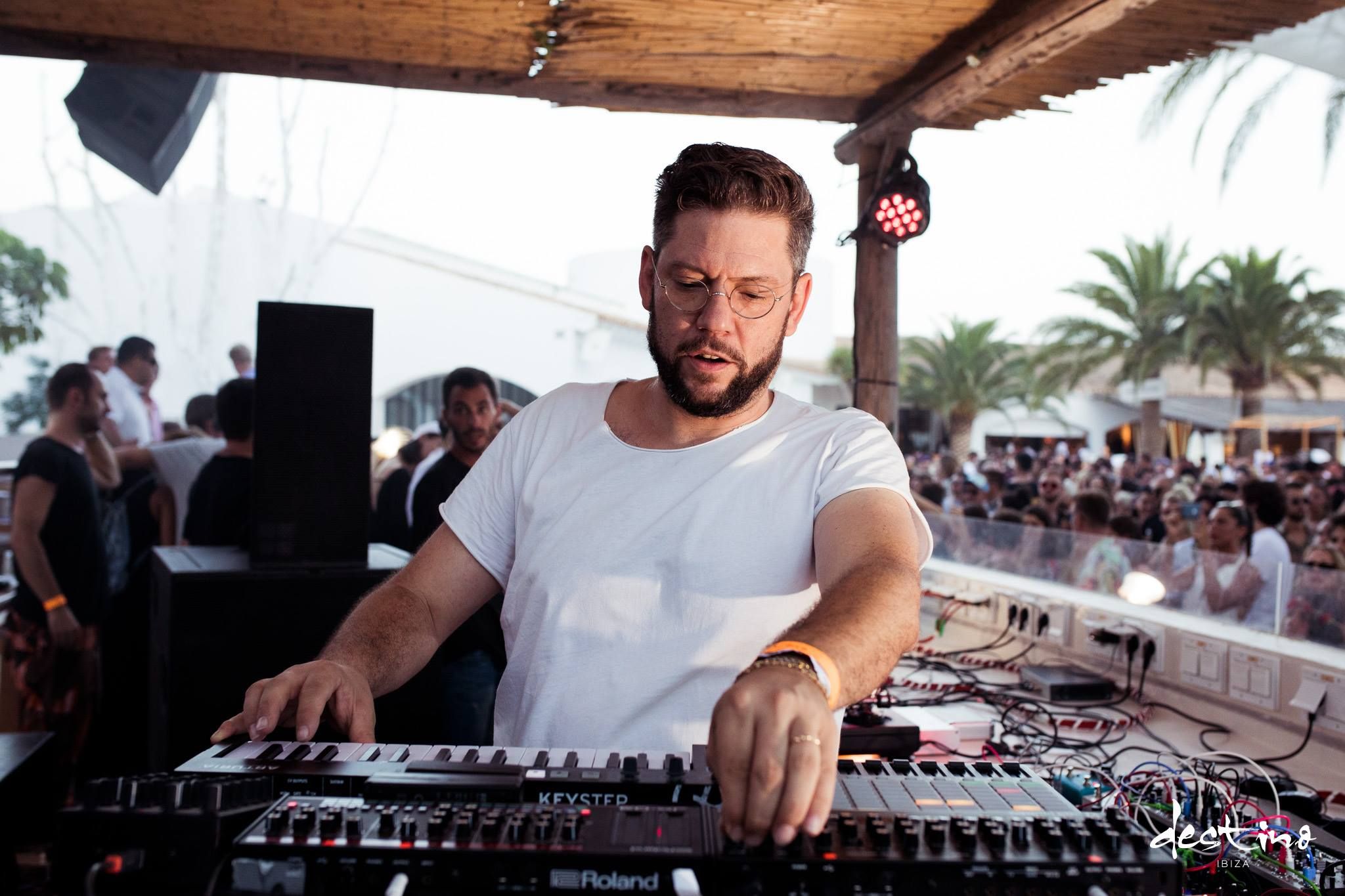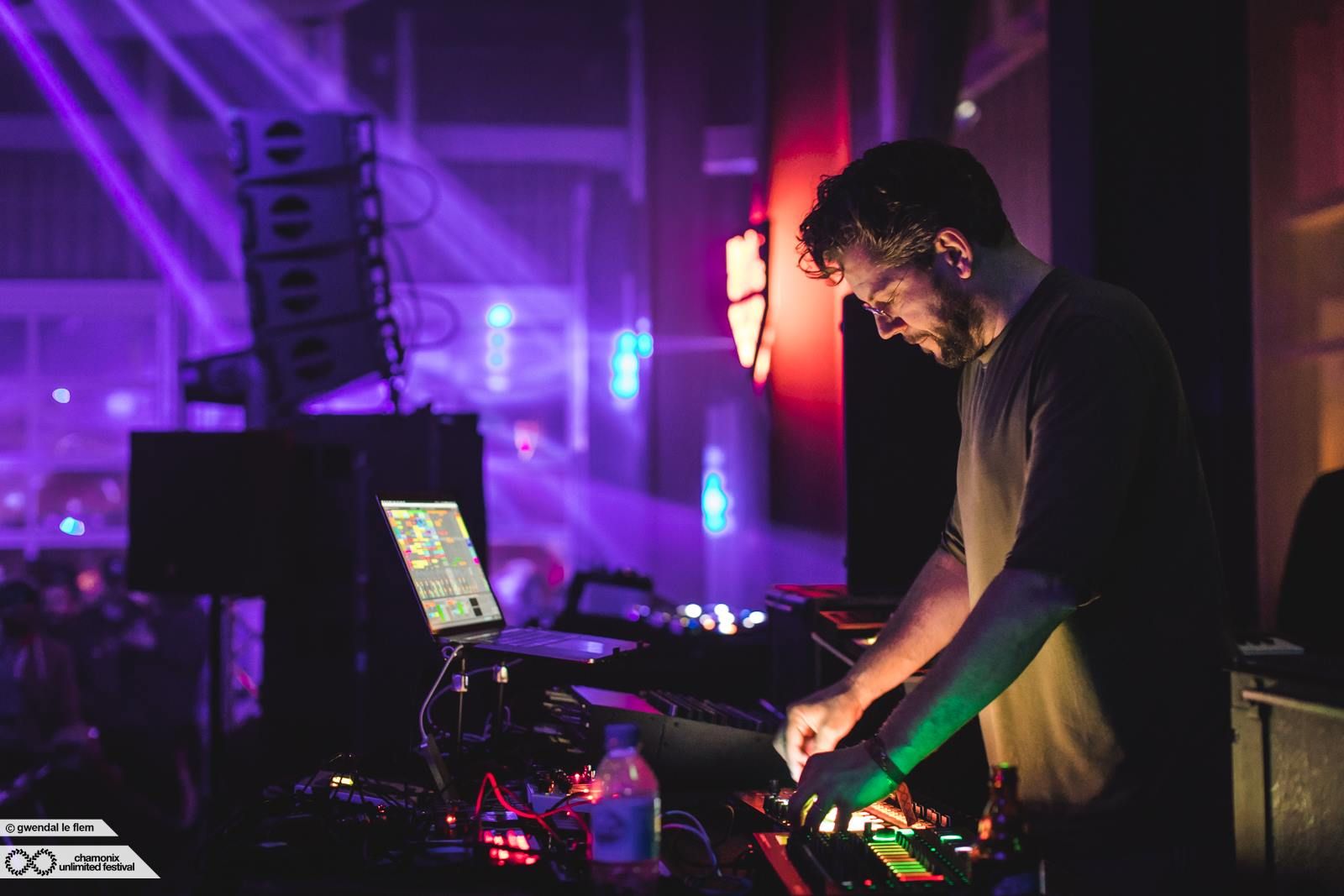Frank Wiedemann, a German musician and label owner of the iconic Innervisions and Bigamo Musik, is best known as one half of Âme and is also a member of electronic music acts A Critical Mass, Schwarzmann, and Howling. We sat down with him to hear about a number of exciting projects he has stirring – Circle of Live, launching a new album as part of Howling, and executive producing the 2nd record of Joram Feitsma – out next month.

On Circle of Live, teaching, & production:
First, let’s talk about Circle of Live. Tell us about the project and what you hope participants will learn from it.
Circle of Live is a collective of people who play live, hosted by Sebastian Mullaert, that launched 2 or 3 years ago. There are approximately 20-25 people in the circle. Its original idea was to play shows together with 3-5 people, all improvised, that covered the whole evening for 7 or 8 hours. The musicians are on one stage, but everyone can leave the stage and don’t need to play all the time, so it adds a relaxing aspect. It’s a wonderful setting, I must say. I’m grateful that Sebastian added me to the circle.
How about In Bloom, and the online classes provided through Circle of Live?
Since we can’t play anymore because of this pandemic, we thought of doing other things with the Circle. The platform, called In Bloom, started to do online classes. Sebastian also has a hotel in Sweden where we could think of bringing people together in the future. Sebastian started the platform, and now I’m doing my own online classes over 6 courses about my experience with playing live, studio work, and aspects of collaboration. For me, it’s a new thing. I did some Red Bull Music Academy talks, but it was always interviewed – not teaching. I’ve held one course already on Circle of Live, and the second will start in mid-February.
We also offer a few One-On-One sessions for the students of the cycle. I think it’s such a cool opportunity because if I had this chance in the past – let’s say, if I could have called Carl Craig – it would have been great.
What turned out in the One-On-One sessions, and what the community misses the most these days, is to have a place of discussion and an inspiring talk with someone — and it’s even more important since nobody can meet right now. In the past, we used to meet in record stores: the party promoters, the record store owner, the DJs, and the labels. Everybody was just there. There’s not so many record shops anymore. I hope they will survive, though.

How do you approach music production? What qualities do you believe are necessary to become a good producer?
Well — I guess a little bit of talent is needed. A lot of it, though, is really work, patience, and believing in it. These days, a lot of people start to make music because they see the possibility of becoming famous. I think if this is your main drive, then it’s the wrong path. I know people who became successful that way, but I believe that for yourself as a producer, to stay balanced it’s good to do it because you really want to make music –– not because you want to get rich and famous.
Yet most people I know who succeeded and got famous worked their asses off to become who they are. For instance, if I take a look at Richie Hawtin, he is probably working 26 hours a day. He is so driven and has so many ideas and projects he wants to get on the road, that he has to work a lot. For me, I’m a bit more relaxed and I have two kids –– but otherwise, I’m here in the studio.
Let’s talk about your studio. What’s your gear setup, and why did you choose these instruments?
Well, it’s a lot. I really like physical instruments. I have nothing against software and I use software as well, but I need this kind of studio set up with a lot of gear. I would not say there’s a specific instrument I enjoy the most, but I need to have a variety of tone-making instruments — whether it’s a synthesizer or drum machine.
I had this moment yesterday in my second studio, and I instantly started making music. This equipment inspired me. It’s more about having one thing that inspires you when you touch it.
On playing live:
What instruments have you explored lately? How do you function when you create music?
I need different things. As soon as I have something new, I start to experiment with it. But it doesn’t mean I have to buy new gear all the time. I just have to rediscover.
What I found out recently is that there’s this beautiful instrument synthesizer where I could do unheard, beautiful sounds. I always try to dive into them, but I make less music as if I have only a piano or an organ which have less complex sound possibilities. It’s more about the music than the sounds for me. Take this string synthesizer, for example, from the 70s from Korg –– I switched it on yesterday and I recorded something immediately.
What are the key elements to creating a successful live set?
That’s a very long story – but in a few words, I would say that for me it’s important to play my songs free. I don’t want to play an arrangement that’s already there, or fixed – and I don’t want to play the same songs all the time. I really want freedom. I need my songs split into parts so I can rearrange them or leave stuff out. If I just want to play the vocals, I can. That’s where it’s interesting to me. It’s where I start to shine as I can create something special at the moment.
For me, it’s important to play my songs free.

What do you think will be done differently in the music world, both with creation and performance?
That’s very difficult. All of us are searching for something different. I’m probably one of the last generations to work with analog gear. This could change, but on the other hand, I’m convinced that people will still play “real” instruments. There will be always people playing guitars and people always playing a drum set. As long as I’m in the business, I see waves like this. When I started there was very much techno, then a comeback of indie rock. I think this will continue: people exploring new ways and new technologies. I also believe AI will play a future role in this. There will be a lot of generated music. I’m pretty sure, though, that we will come back to the “real musician” with just a guitar.
On recent projects:
Upon releasing your LIMBO compilation with Dixon on Innervisions, he mentioned that “The world is in limbo and going through a transition. So is Innervisions, building a bridge between how we have done things in the past, and how we want to do things in the future.” Is this a feeling you share?
For now, I can’t say more. But Innervisions will have a change. We’ve been releasing club music for 15 years – and I’m not saying we’ll stop releasing club music, but there are other people coming. And what I just said, I do music that’s inspired by club music, but today I do more listening music. I will tell more about it in the future.
“Colure” is your first collaboration as part as Howling since 2015’s Sacred Ground. What’s special about this piece, after 5 years of silence? Why decide to come back?
It actually took us 5 years to record it. It’s just that we didn’t have the chance to meet so often. With Ry touring a lot, and me touring a lot, we live on two different continents – so it’s hard to find time together. We need to be in the studio together to start a song. The finishing and the arrangements can be done separately, but we need to sit down, both of us, at some point in the room. Also, when the album came out in 2015, we toured more or less for a year – and then we had 3 years of meeting once a year for a couple of days. That’s the reason it took so long.
On your music career & projects:
How your life as a DJ helped you shape where you are?
The DJ life made me understand club music. Very simple. I had a couple of phases where I didn’t play house. When I started, we had lots of funk music and later went to drum and bass, electronica and some hip-hop and later house; but I could not imagine playing in a club, 4-to-4 all night.
I remember when I was at Robert Johnson in Frankfurt that it was all about having a great night. It influenced my DJing, and also my music creation. Sometimes I miss this since I haven’t been DJing since 10 years now and also I don’t go to clubs that often except for work every weekend and I rarely party. Sometimes I feel when I make music at the moment, it’s about how I would play it live or how I would listen to it at home. There is a lot of music at the moment –– for instance, with Howling –– where making music is for listening at home. I just finished a remix and I listen to it and I don’t even know if I could play it in a club, even though they wanted a “club remix”.
You’ve got many projects under your belt – Âme, Howling, Frank Wiedemann, A Critical Mass, and Schwarzmann. How do you express yourself differently in each of them? Why did you choose to pursue so many?
I’m not sure if I express myself differently. It’s mostly a collaboration. It’s another mix. I feel myself in all the projects. It’s a different type of working. For instance, for Âme, Kristian doesn’t really touch knobs and it’s different than working with Ry from Howling. As soon as there are two musicians in the room, it’s a new layer. What’s funny and I experienced sometimes, for instance, when I’m in the studio with Mathew Jonson, I’m trying to sound like Mathew Jonson. He might sound a bit like me. It’s a weird thing, I don’t know what it is. I’m the same in every role, but it’s the results of who is together in the studio.

And last but not least, a fun question:
If you could choose some people to invite to a dinner – they can be dead or alive – who would they be?
I would like to have Brian Eno on the table. Peter Gabriel. Prince. Delia Derbyshire working at the BBC workshop, as she is a huge innovator in electronic music. I also would love to have Nina Simone at the table because I think she is a badass. I also would love to have probably David Bowie at the table. Paul McCartney as well.
And that’s only for music so far. I could have more. I also definitely would love to have Florian Schneider from Kraftwerk at the table. Somebody like Igor Stravinsky or Olivier Messiaen. The list goes on. Maybe Sati, too. But actually, I would prefer to meet them separately for a one-on-one dinner.
A man of many musical talents, Frank Wiedemann’s role as a musician has been beautiful to watch – and we’re curious to see what’s to come. In the meantime, you check out his Circle of Live profile & his online mentorship program.





